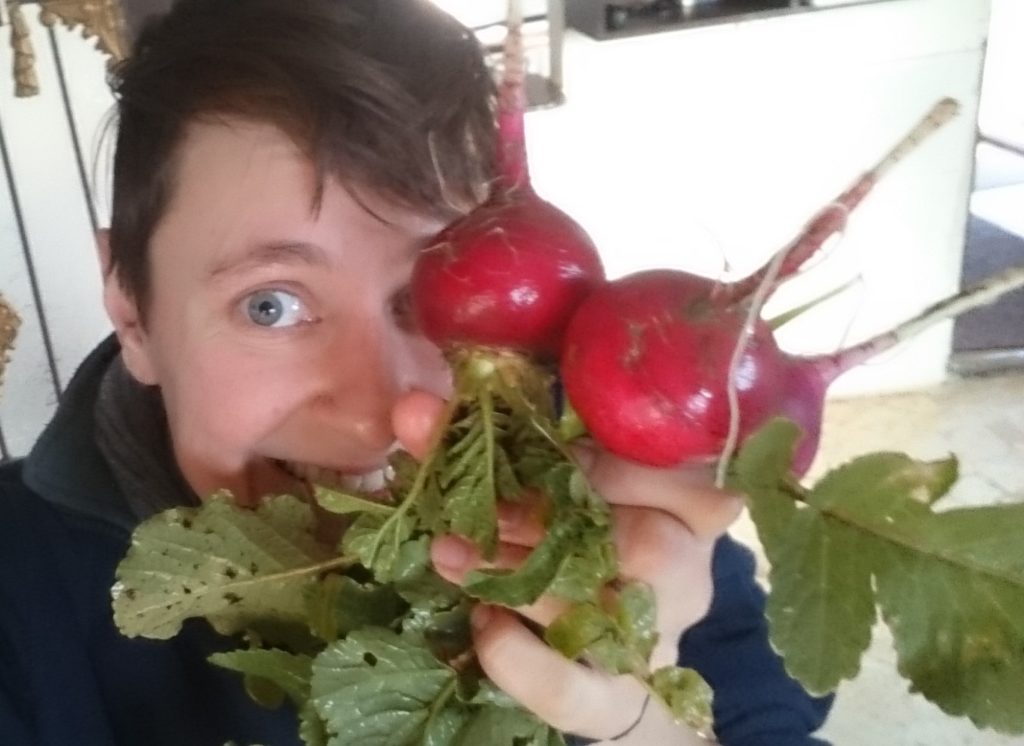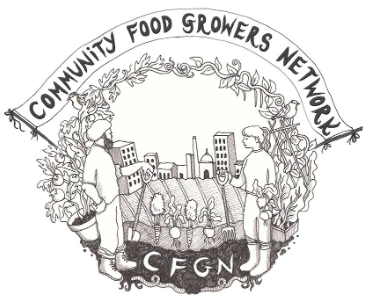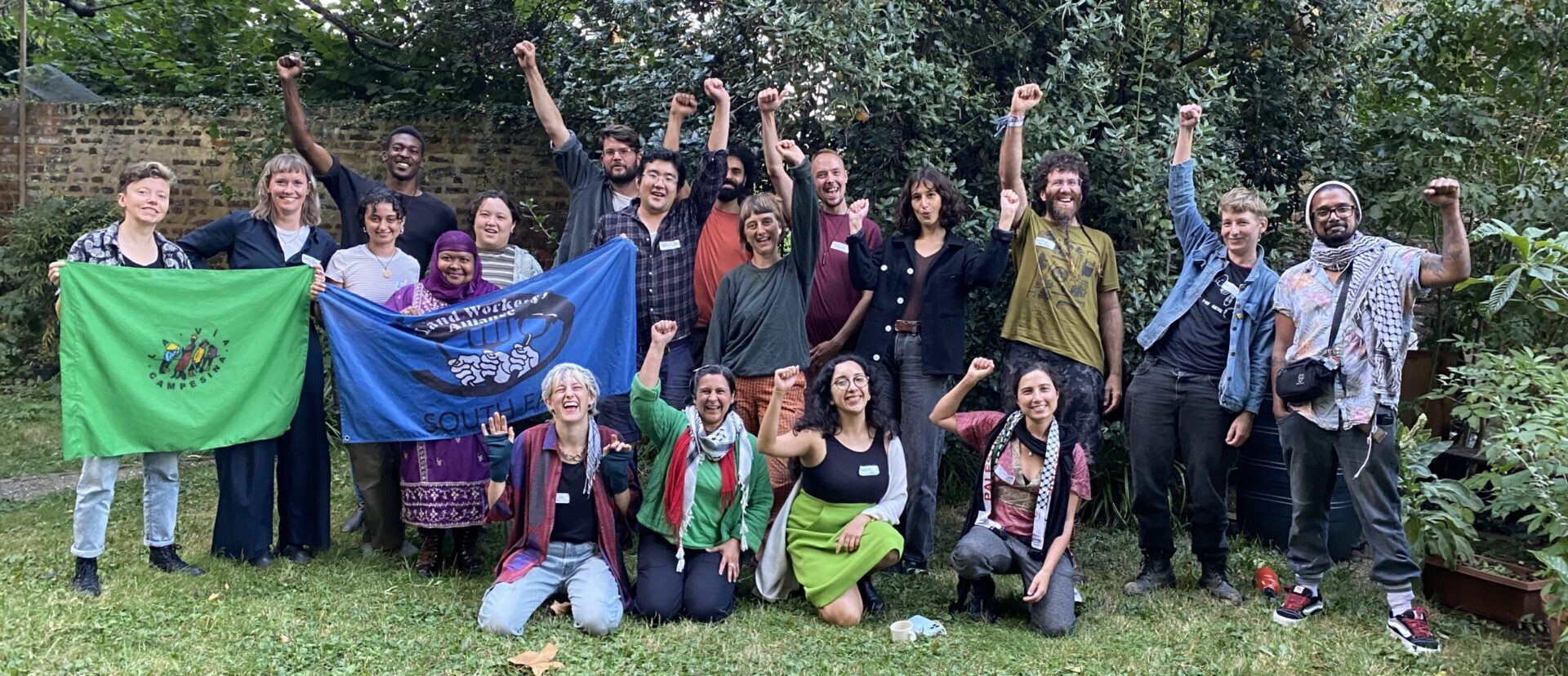Sowing the Seeds of Revolution: from Syria to London

Natalie Szarek is currently in Rojava, North Eastern Syria, participating in ecological work and learning from the work of the revolution, which is based on radical democracy, ecological sustainability and gender liberation. Before transplanting to Rojava, Natalie was involved in the ecological food movement in London, including coordinating the Community Food Growers Network, founding Audacious Veg CIC, and working in various community gardening projects. This is the first in a series of articles where she will attempt to apply the experiences and perspectives of the revolutionary movement in Rojava to the community growing and food sovereignty movement in England.
Background:
Rojava, also known as Syrian Kurdistan or the Autonomous Administration of North and East Syria, is a region of Syria which borders Turkey and Iraq. Since the outbreak of the Syrian Civil War, the region has become semi-autonomous, establishing a society based on a system of grassroots democracy called Democratic Confederalism. The Peoples Defence Units (a third of which are made up of women) have been uniquely successful in pushing back ISIS/Islamic State over the past few years. Along with ISIS, the Assad regime has effectively been pushed out, and the region has undergone a revolution centred on democracy, women’s liberation and ecology which is rooted in a rejection of the state and capitalism. The region – which has a population of several million – is the largest modern example of a democratic society living without a state, and has given leftists around the world much hope about the possibility of a fundamentally different way of organising society.
Ecological sustainability is a core principle of the revolution, but one that has been particularly difficult to put into practice. Due to oppressive Assad regime policy prior to the revolution, more sustainable traditional methods of food production and ecological stewardship were wiped out and replaced with monoculture and mass deforestation as a tool of oppression. Now there is a strong political appetite to become more sustainable, but there are some major barriers. These include a lack of knowledge, infrastructure challenges and a fluctuating security situation which makes life unpredictable and swallows up a lot of resources. People from all over the world have come to Rojava to learn from the revolution and take part in it. This article is written by a London food grower who has been in Rojava since early this year, participating in education and ecological works.
***
At roughly the same time that the revolution in North East Syria unfolded eight years ago, I started to work at a community garden in London. For me, working in a community garden was a step away from my previous work, which was more centred around campaigning, protests and direct action. I wanted to focus on ecological sustainability and people empowerment in a more community oriented way, and was attracted by the idea of putting principles of sustainability into action. The world of community food growing and permaculture attracted me because it presented a starting point to talk to people about so many issues: community, environment, gentrification, health, migration, family and pretty much anything else. Community gardens were places that people could come together and engage in collective work – share food and stories, make decisions collaboratively and learn new skills, and feel the healing effects of being outdoors and working with plants.
To me, the community food movement offered a counterpart to the hectic and demanding world of political organising. In the activist world, too often it felt like people were treated without care and kindness, and groups fell apart over disagreements or lack of commitment. Activists became either disconnected from society or co-opted into structures of power, and we failed to build a long term strategy to resist the exploitation and oppression caused by the capitalist system and the government. At the same time, I found that in the food growing world it was dangerously easy to fall into a local “bubble,” and also to give into the depoliticisation that was often demanded by funders, trustee boards and local governments.
While the British government waged a political war against the people of the UK: against communities of colour, the working class, women, welfare recipients, migrants, young people and disabled people (the list goes on), I felt myself searching for answers that I could find neither in the activist world nor in my community garden. It was increasingly clear that the social movements in the UK were too disconnected from each other and lacking a long term strategy for building power. We were unable to effectively challenge the government, or to use the opportunities created by the crises which were destabilising the political system in order to create a genuinely new way of doing politics.
A few months ago, this search for answers led me to Rojava, the autonomous democratic region on North East Syria where the people armed themselves and drove out ISIS, establishing a liberated territory based on a grassroots democratic system. The political system of the revolution is Democratic Confederalism, which came out of the Kurdish Liberation Movement and was pioneered in the Kurdish region of Turkey. The system is based on devolving power to locally organised communities. In Rojava, the smallest local unit is the commune, which is geographically based and organises through assemblies, working groups and cooperatives. The communes feed into neighbourhoods, which in turn feed into sub-districts, districts, regions and ultimately the entire Autonomous Administration of North and Eastern Syria. Crucially, the aim of the system is for as many decisions and actions to be taken on as local a level as possible. Each assembly elects co-chairs, one of whom is required to be a woman. Cooperative economies, women’s liberation and community initiatives are nurtured through organisational support, finances and education.
The Rojava revolution is a woman’s revolution, and an ecological revolution – the ideology behind it is that patriarchy, environmental exploitation and capitalism are all interconnected, and to overcome them we need to overcome all relationships of domination, which includes the relationship of a state over society. On paper and on the ground, this system is awe-inspiring and exciting. It is not without its faults or contradictions, but it is a big step forward for developing a vision for what a free society looks like.
Because of this, I’ve joined hundreds of people from all around the world in coming here to learn from the movement. Many of us come from ecological and food growing backgrounds, all of us seeking a new perspective on how ecology interacts with liberation. Being here I’ve reconnected with the revolutionary potential of community gardens and food growing projects. The attitude behind democratic confederalism is that rather than only confronting power where it is strongest – the institution of the state, the police, corporations – you have to build up power from our communities, from society. Through organising, struggle and shared vision, you grow your strength until you can push the state out. This means organising cooperative economies, alternative justice systems, collectivising resources to meet the needs of our communities. It means breaking the isolation that capitalism has imposed on us and rebuilding the power of community. And a lot of this is what community gardens and food sovereignty projects are already doing – both in mega-metropolises like London as well as in smaller towns and villages.
We can also draw parallels between the confederalist approach of the Rojava revolution and the network-based organising that ecological groups often intuitively adopt. Initiatives like the Community Food Growers Network are crucial in building relationships of mutual support between local groups, as well as bringing global perspectives to the local level, and local perspectives to the global. They are a tool for building power in our communities – developing relationships, a sense of local identity and ownership, and the connection with nature that is necessary to re-frame our relationship to ecology so that it is based on mutuality rather than domination. They can and should be bases for revolutionary re-imaginings of society – places where people discover the amazing things that they can do together, and discover the strength that we can find when we set our eyes on a horizon beyond capitalism, the state, and domination.

